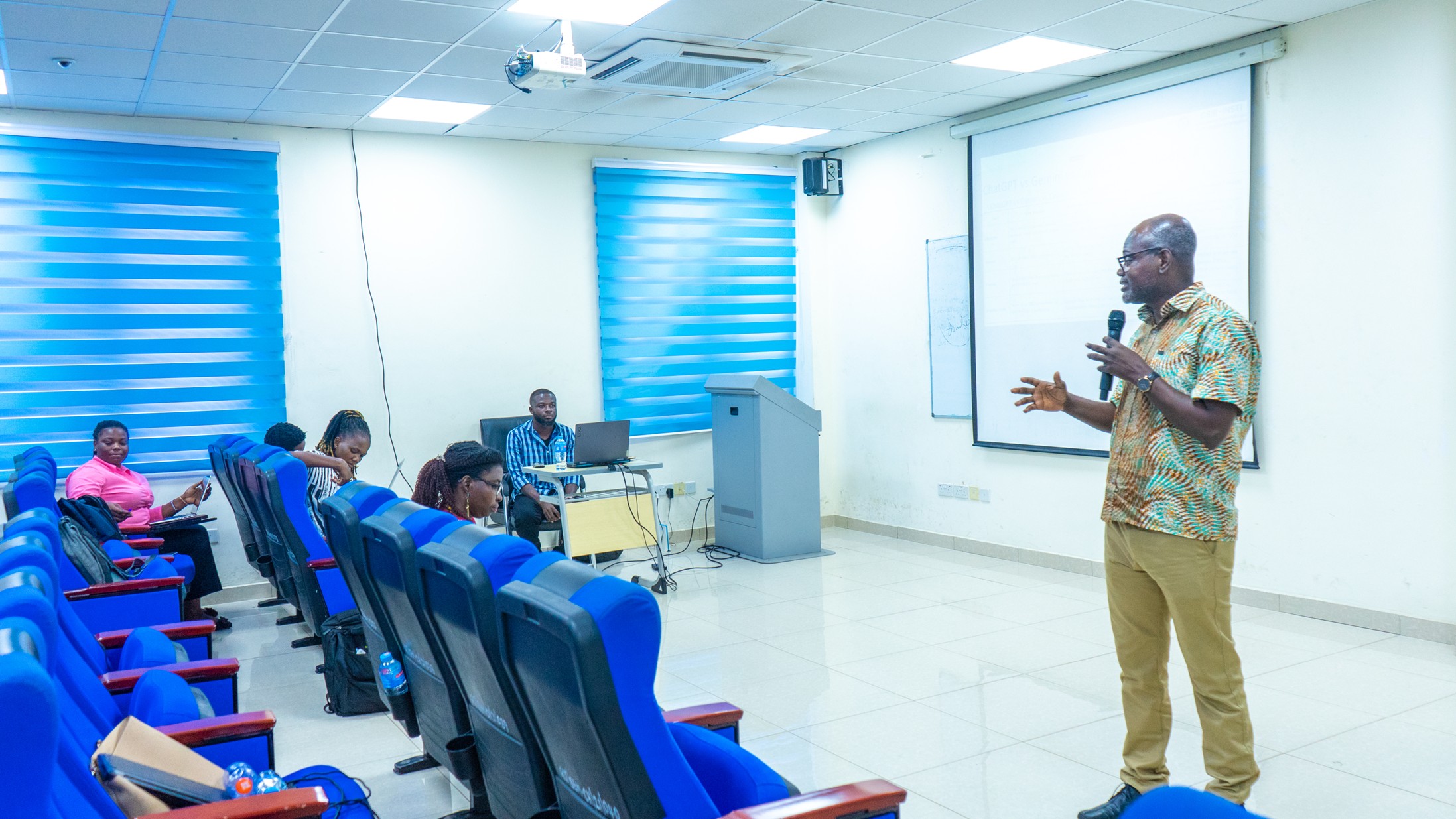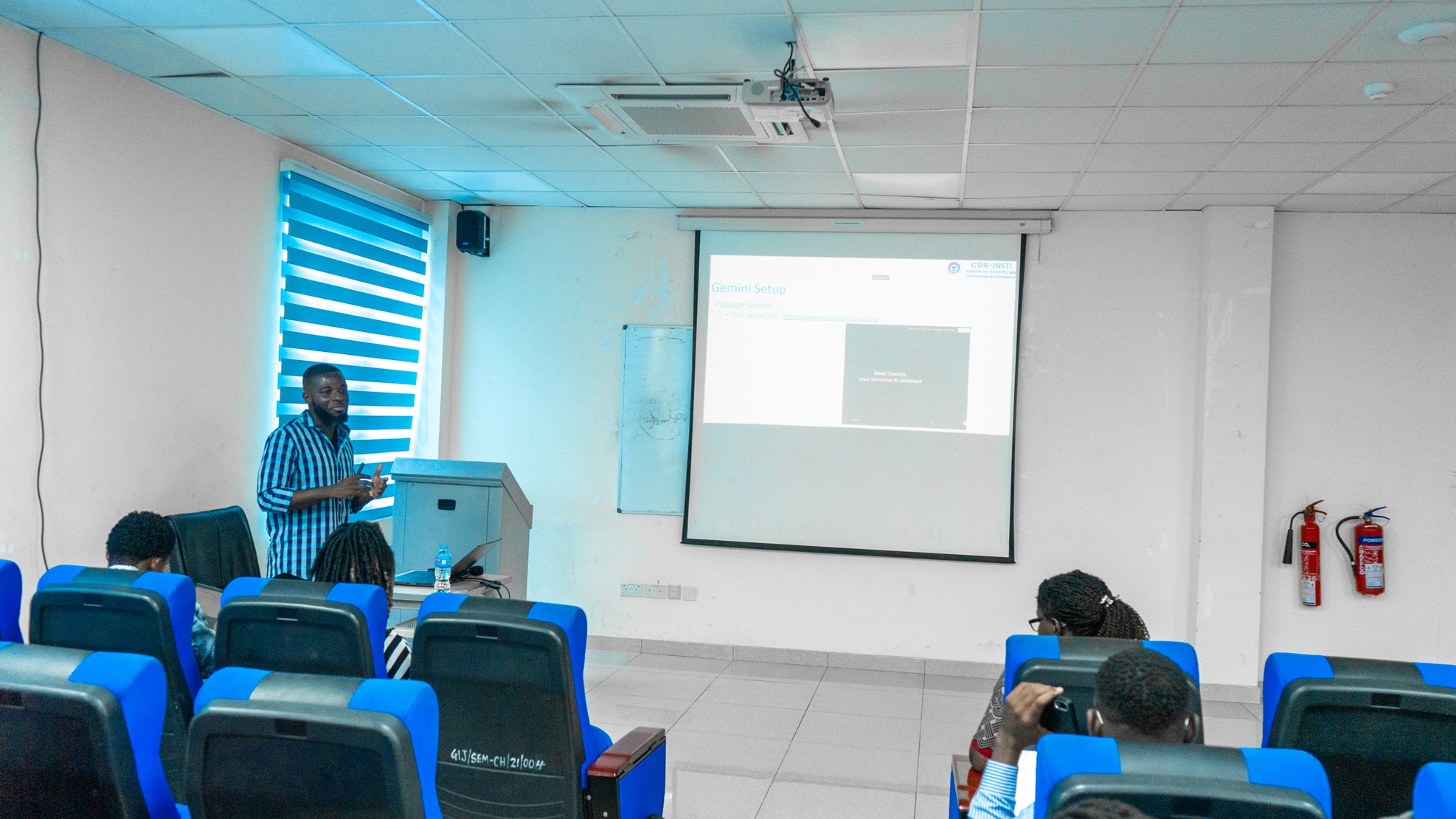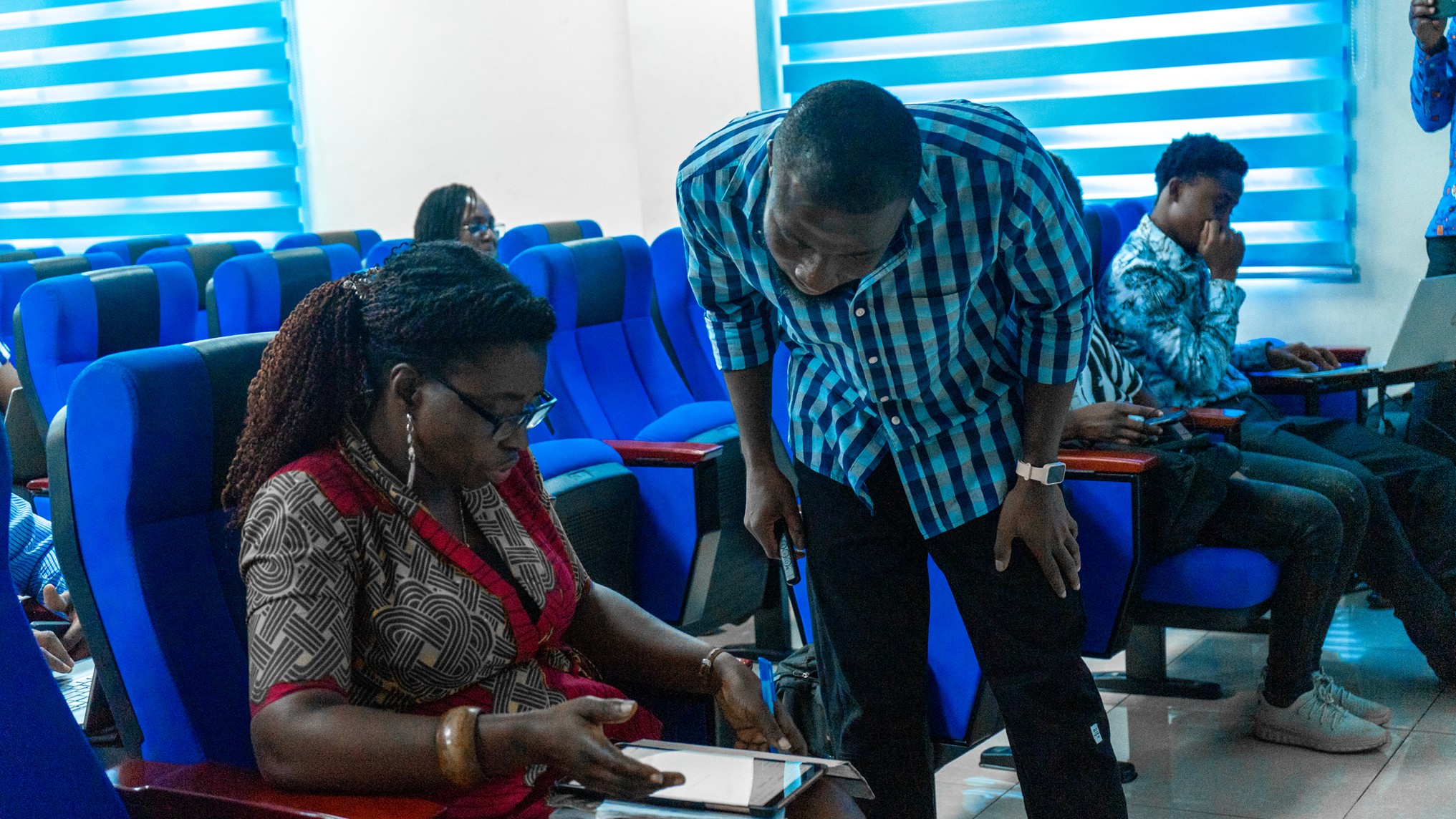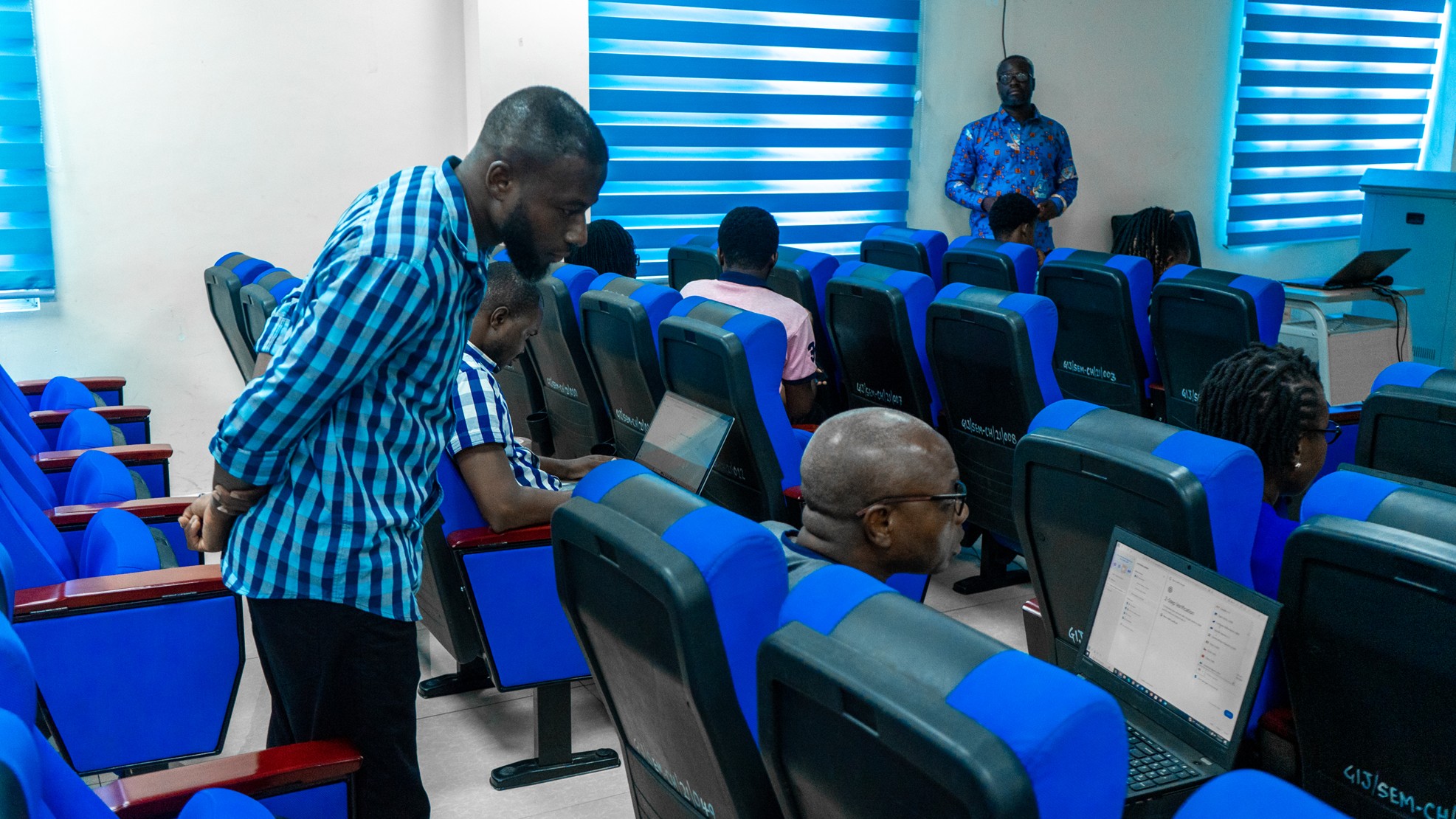
The University of Media, Arts and Communication (UniMAC) has taken another major step toward strengthening digital innovation in higher education with a hands-on workshop on “Automating Academic Workflows: AI Tools for Research and Teaching.”
The training, held on Thursday, November 6, 2025, at the south Legon Campus, was organised by the UniMAC Library, in collaboration with the Directorate of Research, Innovation and Development (DRID). The session brought together faculty, researchers, and academic staff seeking practical ways to integrate Artificial Intelligence (AI) into their teaching, research, and administrative work.

Leading the workshop as the Resource Person, Dr. Dennis A. N. Gookyi, a Research Scientist at the CSIR-Institute for Scientific and Technological Information (CSIR-INSTI), led participants through demonstrations of four major AI tools—ChatGPT, Google Gemini, Microsoft Copilot, and NotebookLM. He also introduced practical prompt-engineering techniques and showed participants how AI can streamline academic tasks such as literature reviews, lesson planning, grading support, writing assistance, and data analysis.

Dr. Gookyi emphasised that AI offers transformative opportunities for academics when used effectively. “These tools save time, enhance productivity, and help us work smarter. But they only perform well when we give them the right instructions. Good prompts lead to good results,” he explained.

Participants engaged in hands-on exercises and explored how to integrate AI into tasks such as drafting research papers, generating summaries, creating lecture slides, analysing student performance datasets, and automating document preparation. The session also explored ethical use, the limitations of free versions, and strategies to improve output quality through structured prompts.

The training was conducted in a hybrid format, welcoming faculty who joined physically and those who connected virtually. This ensured maximum reach and allowed staff from different schools, faculty and campuses to participate seamlessly.
The workshop forms part of UniMAC’s ongoing commitment to building staff capacity in digital scholarship and positioning the university at the forefront of AI-enabled learning and research.

